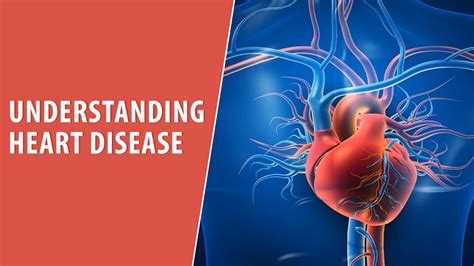Intro
Discover 5 ways to prevent heart disease, reducing cardiovascular risk with healthy lifestyle choices, balanced diets, and regular exercise, promoting overall heart health and wellbeing.
Heart disease is a leading cause of death worldwide, accounting for millions of fatalities each year. It is a condition where the heart's ability to function properly is impaired, often due to blockages in the blood vessels or high blood pressure. The good news is that heart disease can be prevented or managed with lifestyle changes and medical interventions. In this article, we will explore the importance of preventing heart disease and provide practical tips on how to reduce the risk of developing this condition.
Preventing heart disease is crucial because it can help individuals avoid the debilitating symptoms and complications associated with the condition. Heart disease can lead to heart attacks, strokes, and other cardiovascular events that can be life-threatening. Moreover, heart disease can significantly impact an individual's quality of life, making everyday activities challenging and affecting their mental and emotional well-being. By taking proactive steps to prevent heart disease, individuals can reduce their risk of developing the condition and maintain a healthy and active lifestyle.
The risk of developing heart disease can be influenced by a combination of genetic, environmental, and lifestyle factors. While some risk factors, such as family history and age, cannot be changed, there are many lifestyle modifications that can help reduce the risk of heart disease. These modifications include adopting a healthy diet, engaging in regular physical activity, managing stress, and avoiding tobacco and excessive alcohol consumption. By making these changes, individuals can significantly reduce their risk of developing heart disease and maintain overall health and well-being.
Understanding Heart Disease

Types of Heart Disease
There are several types of heart disease, each with distinct symptoms and treatment options. These include: * Coronary artery disease: This is the most common type of heart disease, where the blood vessels that supply blood to the heart become narrowed or blocked. * Heart failure: This occurs when the heart is unable to pump enough blood to meet the body's needs. * Arrhythmias: These are abnormal heart rhythms that can be too fast, too slow, or irregular. * Heart valve problems: These occur when the heart valves do not function properly, leading to problems with blood flow.Prevention Strategies

Benefits of Prevention
Preventing heart disease can have numerous benefits, including: * Reduced risk of heart attacks and strokes * Improved overall health and well-being * Increased energy and physical function * Enhanced mental and emotional well-being * Reduced risk of other chronic diseases, such as diabetes and kidney diseaseLifestyle Modifications

Creating a Prevention Plan
Creating a prevention plan can help individuals stay on track with their lifestyle modifications and medical interventions. The following are some steps to create a prevention plan: * Consult with a healthcare provider: A healthcare provider can help individuals assess their risk of heart disease and create a personalized prevention plan. * Set realistic goals: Setting realistic goals can help individuals stay motivated and engaged in their prevention plan. * Track progress: Tracking progress can help individuals stay accountable and make adjustments to their prevention plan as needed.Medical Interventions

Benefits of Medical Interventions
Medical interventions can have numerous benefits, including: * Reduced risk of heart attacks and strokes * Improved overall health and well-being * Increased energy and physical function * Enhanced mental and emotional well-being * Reduced risk of other chronic diseases, such as diabetes and kidney diseaseConclusion and Next Steps

We invite you to share your thoughts and experiences on preventing heart disease in the comments section below. Your feedback and insights can help others stay motivated and engaged in their prevention plan. Additionally, we encourage you to share this article with friends and family members who may be at risk of heart disease. Together, we can reduce the risk of heart disease and promote overall health and well-being.
What are the main risk factors for heart disease?
+The main risk factors for heart disease include high blood pressure, high cholesterol, smoking, obesity, physical inactivity, and a family history of heart disease.
How can I reduce my risk of heart disease?
+You can reduce your risk of heart disease by adopting a healthy lifestyle, including eating a balanced diet, engaging in regular physical activity, managing stress, and avoiding tobacco and excessive alcohol consumption.
What are the symptoms of heart disease?
+The symptoms of heart disease can vary depending on the type and severity of the condition, but common symptoms include chest pain, shortness of breath, fatigue, and swelling in the legs and feet.
How is heart disease diagnosed?
+Heart disease is diagnosed through a combination of physical exams, medical history, and diagnostic tests, such as electrocardiograms, echocardiograms, and blood tests.
Can heart disease be treated?
+Yes, heart disease can be treated with lifestyle modifications, medications, and medical interventions, such as surgery or angioplasty. The goal of treatment is to reduce symptoms, slow disease progression, and improve overall health and well-being.
